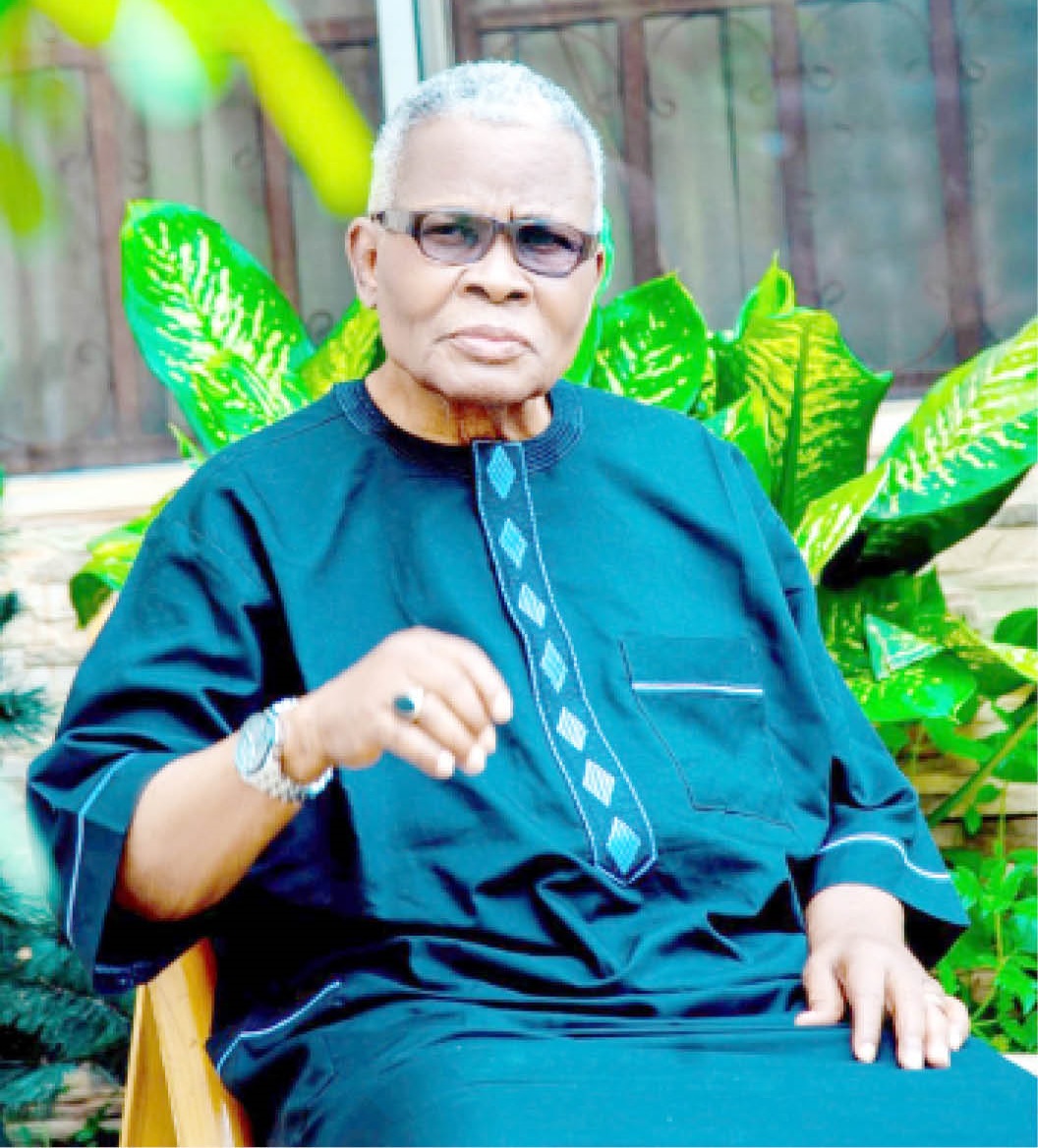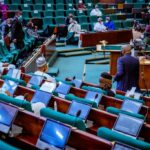Aaze Tom Adaba is a professor of Communication and acclaimed broadcast/media expert. Adaba who hails from Okene, in Kogi State, had a spectacular odyssey in the media firmament where he legendarily left his footprints in the sand of time as a pacesetter in the Nigeria mass media development.
After paying his price in the broadcast practice at the Nigeria Television Authority (NTA), the media teacher and author hit the zenith of his career as the pioneer Director General (DG) of the National Broadcasting Commission (NBC), where he resigned and continues his media journey as a media consultant.
In this interview, the communication guru who turned 80 on July 2, sheds light on topical issues bordering on media, leadership and life at 80.
You were a leading voice in broadcast journalism. What is your assessment of NBC as well as the broadcast media?
I don’t see any relationship between the commission and the broadcast media. There have been many instances where the independence of the NBC is being expressed, especially the level of sanctions that it gives to various broadcast stations and the rest of them such as a N500,000 fine, N1 million fine. This was becoming loud and wasn’t giving them a better expression of itself. As a matter of fact, some sanctions were almost unnecessary. These are things you would have called the stations to order, by inviting the chief executives and lambast them over what they have done wrong and tell them not to do it again. The board is there and you don’t have any line of authority.
The minister directs DG, the DG implements and the stations slam any amount of money on them. I think that’s why there is no much rapport between the broadcast stations and the NBC. But I think there are still ways of patching that relationship and bringing back some level of confidence between them.
There are two Acts in the National Assembly — the Press Council Act and the NBC Act. There are assumptions that these are just ways the government hopes to gag the press. What are your thoughts regarding these Acts?
This has come up before. For instance, the issue of the Nigerian Press Council came up much earlier when we were setting up the NBC. There was the thought of licensing newspapers too. But the newspaper owners rose very stoutly and said no government could license them because they are not government agencies but totally independent. This is what they have been since 1876! I don’t see any reason for bringing it up now again; whether it is the imagination of the minister, I don’t know.
The National Assembly must look into it before they implement it. But there are other reasonable rules to be applied instead of licensing them. I don’t think it will work.
How would you describe today’s media? Are we really playing our role as the Fourth Estate of the Realm?
Well, they are being forced to divert by the powers-that-be. Let nobody be in doubt about that.
Yes, the media are fighting to express themselves, but the other parties are fighting to ensure that they are the best. I think it is not a healthy thing for this country Nigeria. If I had my way, I would say that the decree which gave the single power to the minister to decide things for NBC should be expunged because ministers differ. Some ministers know the roles and work on them, and work hand in hand with the NBC. But some others are hungry for power that they would command and direct the NBC to do one thing or the other, whether it is good or not.
Unfortunately, NBC only follows orders from the minister.
I really like that law establishing NBC. It’s a military law because, during the military regime, they needed that to express their opinion in some situations. But in an independent democratic environment, you now say that one person has the right to direct a whole organization which I think is very dangerous. It’s appalling the kind of sanctions being given to media stations.
The Nigerian media in Nigeria is being regionalized. Does this augur well for the media industry in Nigeria?
Certainly not. But the circumstance of our country brought about that. In media stations 10 and 20 years ago, there was a level of coalition and cross-pollination of ideas. Newspapers dominated the media houses then. Right now, everybody is gathering what he has and therefore using the media to help in gathering it. That is exactly what is happening and it’s very dangerous. It is not the best thing. Some are trying, alright, but I’m afraid media segregation is leading us to further division in the country.
Journalists face a lot of insecurity challenges in carrying out their duties. Specifically, this has affected their passion for investigative journalism which used to be one of the major thrusts of journalism practice aimed at providing truth and ensuring accountability.
How can journalists be guaranteed security to be able to do their jobs effectively?
I have no idea of how or where or what should be done. The security agencies may know. But I just know that yes, it is a truth that journalists face serious insecurity challenges. Let it be known too that every ordinary Nigerian citizen, too, faces insecurity challenges. But we cannot come out and take journalism out as a class of its own. Though one realizes how serious the business is, I’m not too sure it is the best thing to single out journalists for protection or
whatever. Even then, there is a need for journalists to be protected because they are doing a very strategic job for the good of the country. How they do it, I think, will rest more on their unity to make their demands. But I can’t tell you how they should be protected. I’m not qualified.
Social media poses a serious threat to the integrity of the journalism profession. With smartphones and new media platforms, everybody is a journalist. How can the mainstream media be salvaged from this saga?
It is not right. It is wrong. There is a serious challenge, but how much can you get on with that? I know that the government is working out one means or the other, but I don’t know if there will be a way out. People did not know before, or rather nobody was aware that they could use a handset to send messages or news messages. But when they began, it worked. I believe that it will phase out. When that will be, I don’t know. But this is not to say that the authorities should not check the excesses because sometimes some of these things could set the country ablaze and that’s not what we want. So, it’s necessary that the authorities do their own part and do it well and not to be seen as cohesive and getting them to realize where the truth is.
What is your view on the Twitter ban drama and the action of the Nigerian government?
Twitter was banned because it deleted the statement of the president. In doing that, how much harm are you doing to the generality of the public? Millions of Nigerians using Twitter will ask, is it fair? They didn’t commit any crime. So, why should they be suffering for it? But I believe there is a committee that is meeting with Twitter now. However, it’s a shameful thing. These are things that give the impression that we are in a dictatorship and it doesn’t augur well for us as a country. I think there are still better ways to handle the issue than banning it. What’s wrong with calling them to order? Let there be a refusal, then you now take whatever step you want to take. Anyway, I don’t know the details of it. So, I cannot delve into it.
Conventional media is seriously being eclipsed by social media, thereby resulting in heavy patronage decline. Many of them are struggling to remain afloat. How do you think they can survive the pressure?
They can survive by standing for truth and doing investigative stories. Through your investigation and creativity. If you wait for a call from somebody asking us to come and cover an event before you do, people who are already there with their phones have covered it and had beaten you to it. But if you cannot do the hot one, why don’t you take your time and come out with some very factual content? And if you feel that though it’s not everybody that wants to be attracted to it, they have an alternative and if what you are dishing out is poor in content, who would come to watch it or read it? Unfortunately, sometimes what the new media give out are false but easily accepted. Big investigative stories make any media house stand out. There are stories out there for the media houses to explore. Till date, I am yet to see any media organization that has covered poverty in its real form in this country.
Tertiary institutions keep churning out Mass Communication graduates, most of whom cannot measure up in journalism practice, but brandish certificates in the labour market. Also, the standard has, to some extent, dropped in impeccable writings in some newspapers and magazines, due to quackery so much that the youth, unlike in the past, can no longer use some publications as a means of studying good English and writing. Who is to blame and what is the way out of the mess?
The graduates themselves should have been moulded by the school and exposed to good English. Watching the BBC news sometimes could help one to grow in his ability to communicate well. There has been so much laxity in the delivery of the language. Even the slangs that come up in the new media find themselves in newspapers, radio and TV stations which are not acceptable or which should not appear.
I remember during our time, I would cast news about somebody whose name was not pronounced without going to find out among us who came from that particular area that the person came from. How is this name pronounced? He/she would tell you and you use it and it would sound like you are a homeboy or a home lady. But these days, who cares? I remember one elder who used to run a programme for us. I was revising or going through a news piece with him and I ran into the name of General Yakubu Gowon and I said, sir, ‘how is this name pronounced? He told me how to pronounce it and I tried my best while reading the news to say it exactly like that.
Media stations need to have is a language laboratory for their staff, especially their newscasters and presenters.
You have been held different leadership positions at different times and levels. What factors do you think are responsible for leadership failure in Nigeria?
One of them is our choice. Have we ever sat down to consider properly who is to lead us? Have we looked at their records?
If you look at our current president based on his records, military experience and previous outings, in the array of governance in Nigeria, he is eminently qualified to lead us. However, the environment is not the same today. The circumstances in which he found himself in the past is different today, which is a democratic setting. In the military regime, if a directive is given, it is followed, and leadership was smooth. That is not applicable in today’s democracy. This has really affected governance here.
There must be a different approach to leadership in this country in the present dispensation.
Coercion is not the solution to the current problems and challenges that the country is passing through now. We are so divided. In terms of appointments, I don’t think there is fairness. What Nigeria needs is justice and fairness. Do you think if we have justice and fairness, the total disregard for law and order going on in this country would happen?
As leaders, we are not good examples from the top to the bottom. If we say this is what should be done, let it be so. But if it is not done because you don’t want somebody to be affected, then I am sorry things will not work out well.
What does life at 80 mean for you?
I think this is enough to qualify me as a serious elder or elder statesman. As far as I am concerned, the obligation I have is to give glory to God for making me who I am. I am me and I want to remain so.
Four of your children are in the broadcast profession. Would you say your fatherly roles or career played any role in their decision to take to journalism?
I cannot say yes, and I don’t want to say no. I have never at any stage in my life sat down for once to tell any of them, this is where you should go. I think they took after me because of the examples and good results they have seen in me. Otherwise, I don’t know any other reason that shaped their decision. The worst one is our last daughter who read Medicine. She is also into broadcast and doing very well. And I keep wondering if you knew that you would go into broadcast, why did you allow me to waste all the money for you to read Medicine? You would have simply gone for Mass Communication. But to God be all the glory, she is doing excellently well. You might have heard the name, Enya Obi. She is the one. I praise and thank God for them.
Why are you not involved in Politics?
I am not in the mood. Active politics? Going to contest an election, going to do this, going to do that? No!
I can advise people who want to go into it. My ways are different from the ways of Politics. My upbringing is that when you see something white, call it white. When you see black, call it black. You can’t do that in Politics. But I thank God that I speak to people. I influence people. If people who play Politics toe a wrong path, I advise them. Unequivocally, I tell them.
I think I am more comfortable as a political adviser. I am more of a political salesman than a political activist.

 Join Daily Trust WhatsApp Community For Quick Access To News and Happenings Around You.
Join Daily Trust WhatsApp Community For Quick Access To News and Happenings Around You.


